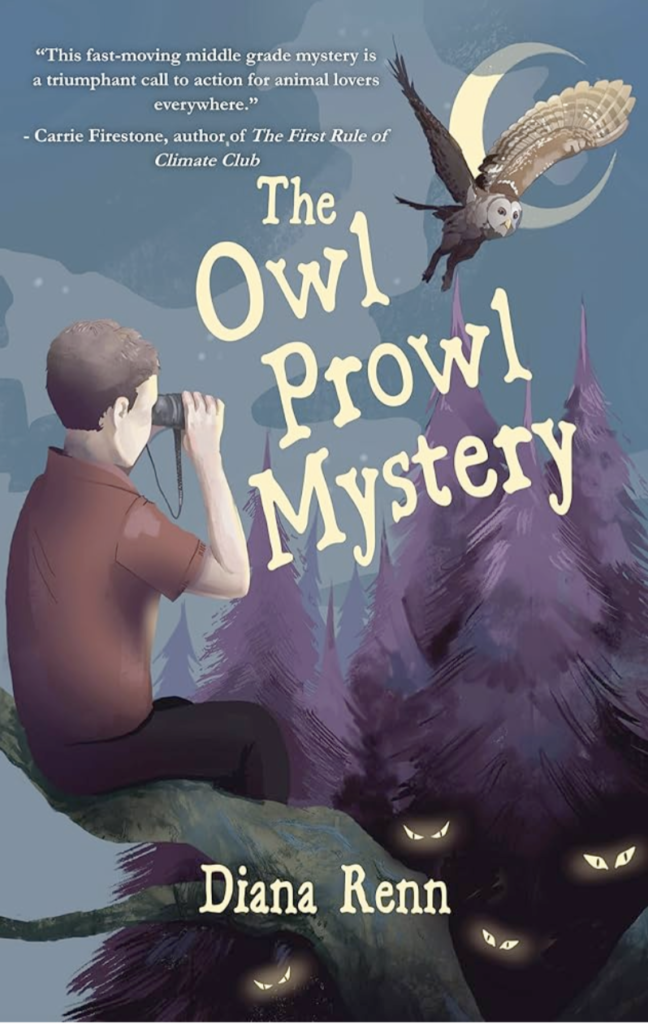Have you been hearing owls calling lately? Though many of us normally sleep with the windows closed at night in the fall and winter, with the recent warm weather I’ve had my windows open and have been hearing a Great Horned Owl calling in the distance. Fall and winter are good times to hear owls since many species are beginning courtship and nest-building now, and as the weather cools, more owls from farther north come down here to take advantage of our (relatively) milder winter.
I’ve also been thinking about owls a lot lately because I just finished The Owl Prowl Mystery, by author and Zoo New England friend, Diana Renn. This is the second book in Diana’s Backyard Rangers series: the first book, Trouble at Turtle Pond, was based on our Blanding’s turtle conservation work and the HATCH program.

Owl Prowl Mystery (and the Backyard Rangers series) is a middle-grade novel that inspires kids to make a difference for wildlife in their community. If you have a budding nature enthusiast in your life, consider getting them these books! But their message isn’t just for kids: The big take-away for me was how important it is to get educated about wildlife in order to actually help — often, well-meaning people do things that inadvertently hurt wildlife, not out of any malice, but simply ignorance. Answers to questions like:
- Which side of the road should you put a turtle on?
- What kinds of plants actually help bees and butterflies?
- What should you do with all those leaves in your yard?
…are not always straightforward or intuitive. In order to make the right choice (or at least a good choice, because sometimes there isn’t one right choice) you’ve got to do your homework and learn about wildlife and the habitat around you.
One of our missions at Zoo New England is to help be that source of information and guidance for those who care about wildlife! So, since owls are on our mind this week, here are some things you can do to help owls:
- Make your yard more hospitable to owls by turning off outdoor lights or only using motion-activated lights
- Avoid rodenticides, or get involved in efforts in your community to ensure that your town is not using “second-generation rodenticides” which are the most toxic for birds (see the “Want to Learn More” section below to learn more about what the Town of Woburn is doing about this critical issue).
- Install a nest box for owls if you have the right habitat around your home
Want to learn more?
→ Tune in to the upcoming Boston Biodiversity Consortium meeting on December 5th and hear Claire O’Neill and James Joyce present on “Beyond the Bait – Uniting Communities, Science, Advocacy, and Policy in Combating Rat Poisons to Save the Wildlife They Impact”
→ Register ASAP to attend the upcoming Owl Walk at the Arnold Arboretum on January 25th, as these walks fill up fast! You can also join the waitlist for the Owl Walk at the Arnold Arboretum on December 15th
→ Watch this video to learn about the owls in our area and how to identify their calls
